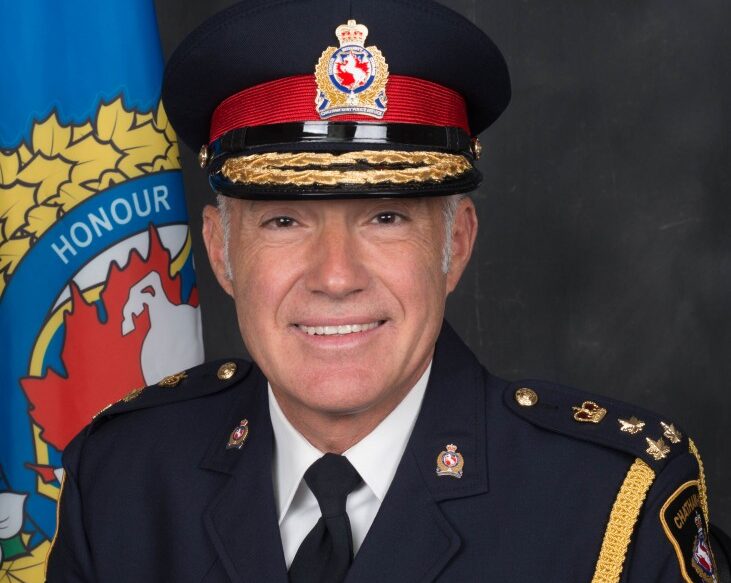
Chatham-Kent’s police chief is calling the new act governing policing in Ontario “progressive, inclusive, and transformative.”
The Community Safety and Policing Act goes into effect on Monday, April 1st, replacing the 34-year-old Police Services Act following years of consultation with municipalities and policing stakeholders. The act includes a total of 263 sections, which is 100 more than its predecessor.
The new law addresses several aspects of policing including officer oversight, community safety, and establishing new mandated equipment and training.
CK Police Chief Gary Conn said there will be a phased approach for some of the regulations in the act, allowing police services between 12-18 months to implement certain changes.
“That provides us with a little bit of runway in order to get up to speed and ensure compliance with the act,” said Conn. “The act has very wide-reaching changes which will affect several of our procedures and we are diligently working to get them up to current standards.”
The biggest changes in the act that are likely to garner the most public interest are the new rules allowing police chiefs to suspend officers without pay in some circumstances.
Until now, an officer who has been charged with a criminal offence would remain suspended with pay until they resigned or were fired through police disciplinary procedure. Paid suspensions for police officers can typically can last for months or even years depending on the situation.
“Citizens should reasonably expect… that their tax dollars aren’t used to pay the salaries and benefits of officers who can’t perform their duties because they are awaiting the outcome of a serious charge or charges unrelated to their duties,” said Conn. “Cases of serious misconduct can take years before a verdict is reached, during which time, taxpayer money is being used to pay for the officer’s salary.”
Under the new act, police chiefs in Ontario can now suspend officers without pay if the officer has committed a serious offence and the offence is not committed in relation to the officer’s duties. To move forward with the suspension, the chief also has to commence dismissal proceedings and determine if a paid suspension would discredit the reputation of the police service.
“In the nine years that I’ve been chief, I can think of a couple of incidents where this would have been applicable,” said Conn. “The provisions in the new act are definitely a step in the right direction.”
Conn said the previous suspension regulations were “archaic” and no longer instilled public trust.
Under the old Police Services Act, a police chief could only suspend an officer without pay if they were convicted of an offence and sentenced to imprisonment. As well, if an officer is in custody or subject to bail conditions that interfere with their duties, the chief could also move forward with an unpaid suspension.
The updated law will also see the creation of two new civilian oversight agencies, including the Office of the Inspector General of Policing, which will be the first of its kind in Canada.
“The office will ensure police services, police service boards and municipalities are adequately resourcing and operating their police organizations and secondly, [it will be] undertaking research and supporting police services and improving their resources and practices,” said Conn.
As well the Law Enforcement Complaints Agency (LECA) will replace The Office of the Independent Police Review Director. LECA will receive and manage public complaints about the misconduct of officers, special constables and chiefs of police.
Conn added that the new act will also mandate new equipment for officers in case they respond to an active attacker situation. This will include carbine rifles, heavier body armour, bolt cutters and a battering ram.
“[Implementing the new act] is going to be a learning experience for all parties involved,” said Conn. “Police services, stakeholders, the government, we’re all going to work collaboratively together to affect a smooth transition.”




